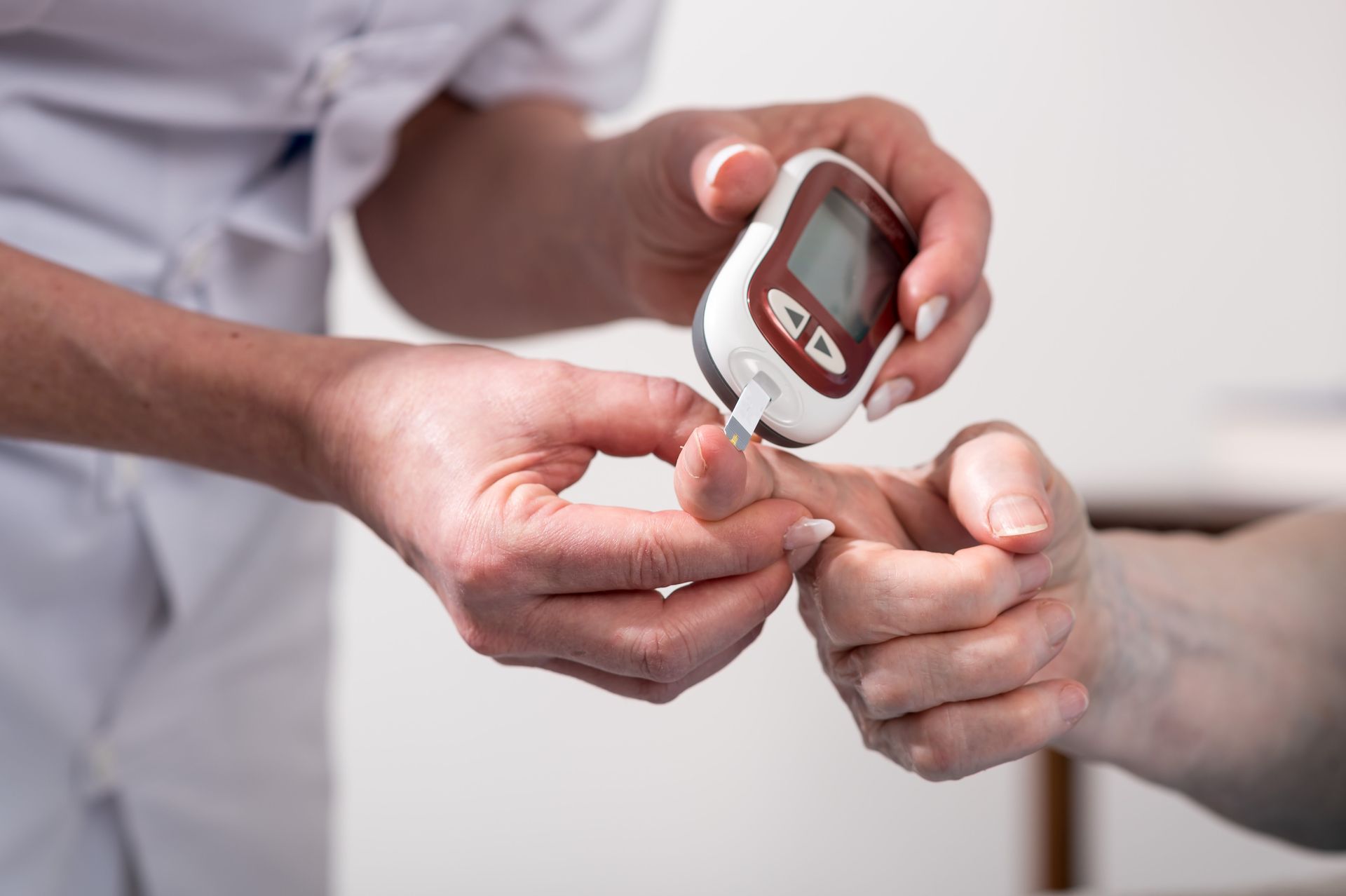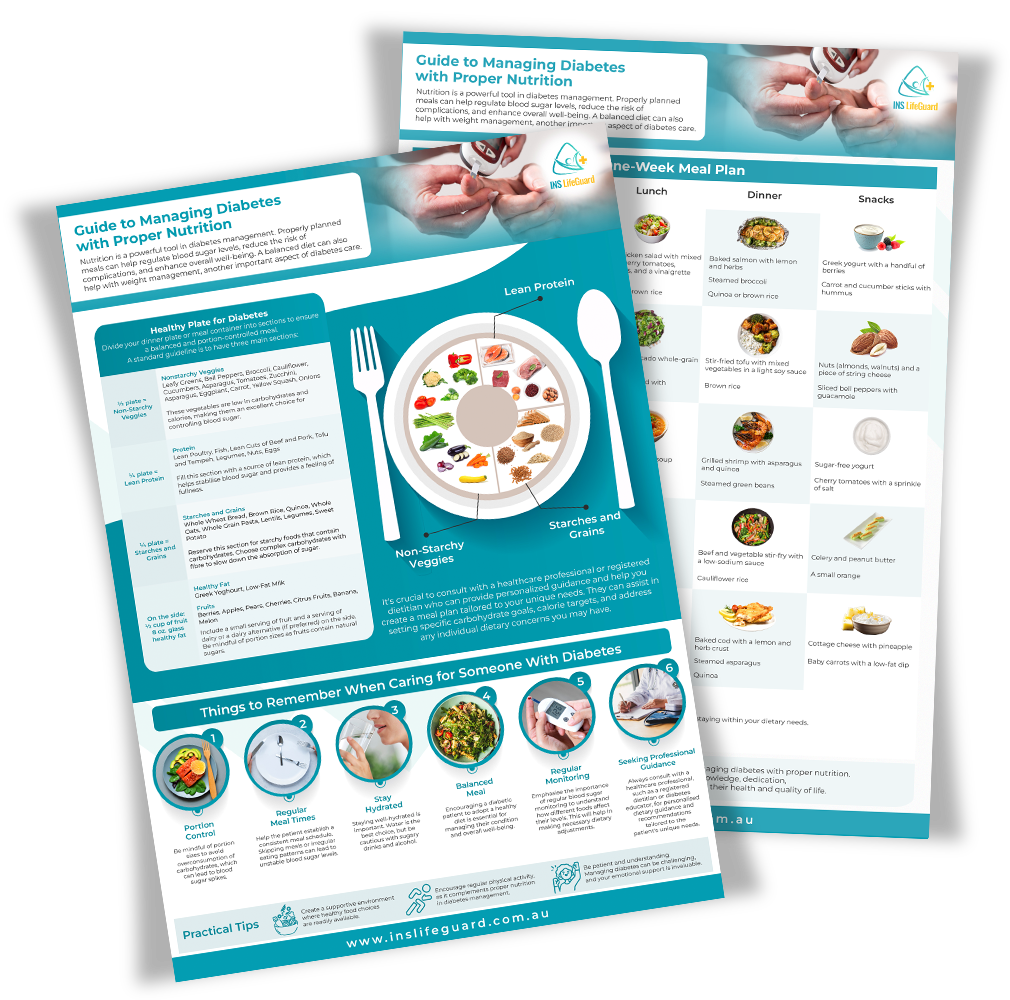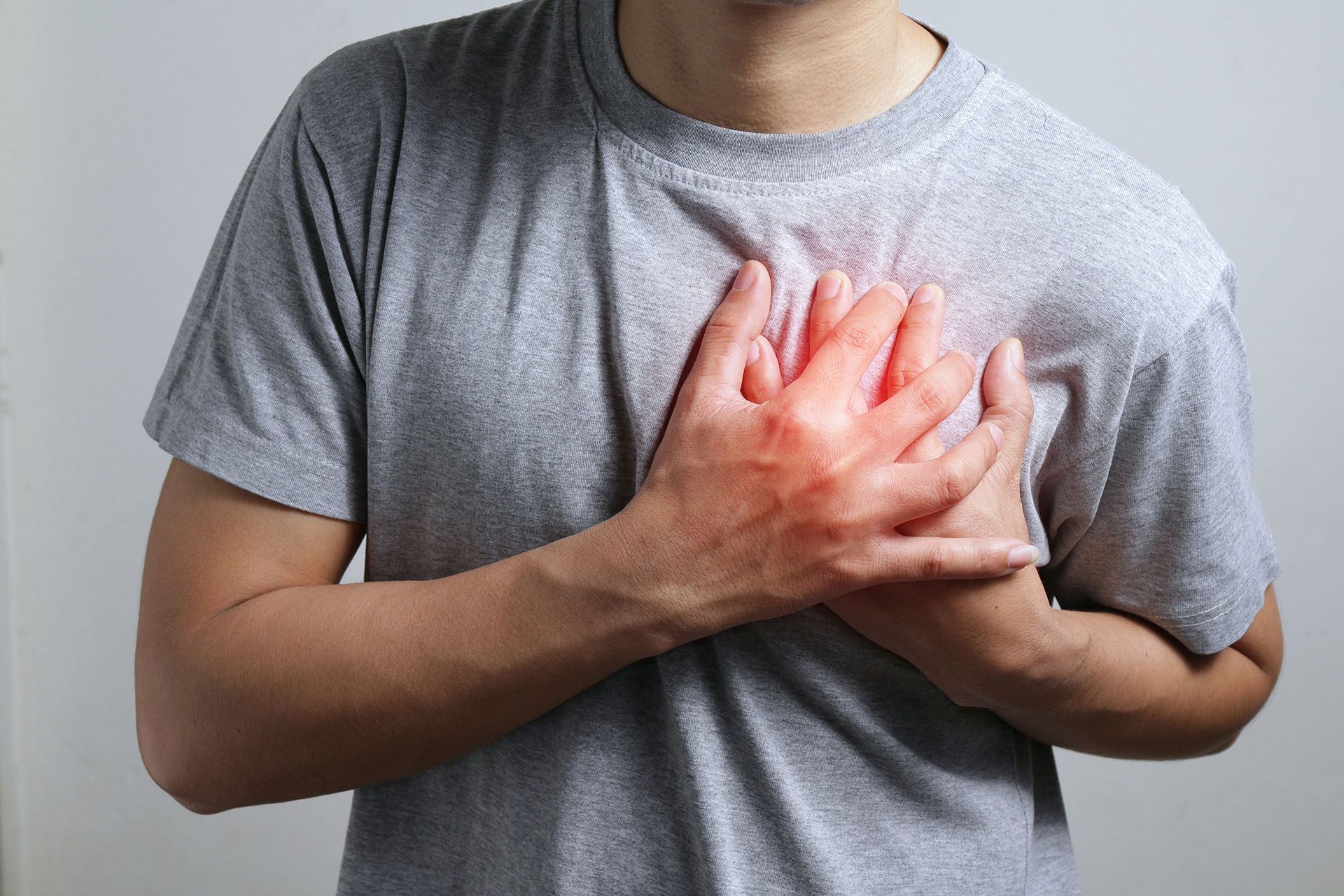INS LifeGuard
Diabetes Management: Strengthening Support for Carers

According to data from the National Diabetes Services Scheme (NDSS) and the Australasian Paediatric Endocrine Group (APEG), there were over 1.3 million new cases of type 2 diabetes reported in the country between 2000 and 2021. This translates to approximately 60,400 newly diagnosed cases each year or roughly 165 individuals being diagnosed with diabetes every day.
Living with diabetes constitutes a lifelong journey that demands careful management and support. Typically, individuals with diabetes depend on their caregivers for effective health management. This crucial role is frequently undertaken by family members, close friends, or professional caregivers.
Caring for someone with diabetes is a significant and challenging responsibility, as both patients and their caregivers face various difficulties. In this blog, we aim to provide insights, guidance, and support tailored to the unique needs of those who care for individuals with diabetes.
But before delving into the specific challenges, it's important to gain a clear knowledge of what diabetes is.
Understanding Diabetes
Diabetes is characterised by an abnormal regulation of blood sugar, or glucose, levels in the body. This intricate metabolic disorder can lead to a wide range of complications and significantly affect various organ systems.
Glucose comes from the foods you eat and is carried by your blood to your body's cells, where it is used for energy. Insulin, a hormone produced by the pancreas, plays a crucial role in regulating blood glucose levels.
Diabetes occurs when there is a problem with insulin production or how the body responds to insulin.
There are three main types of diabetes:
1. Type 1 Diabetes
This is an autoimmune condition where the immune system mistakenly attacks and destroys the insulin-producing beta cells in the pancreas. As a result, the body cannot produce enough insulin. This is typically diagnosed in children and young adults and requires daily insulin injections or an insulin pump to manage blood sugar levels. The exact cause is not well understood, but it's believed to involve genetic and environmental factors, as well as an autoimmune response.
2. Type 2 Diabetes
This is the most common form of diabetes and is often linked to lifestyle factors, including poor diet, lack of physical activity, and obesity. In type 2 diabetes, the body becomes resistant to the effects of insulin, and the pancreas may not produce enough insulin to maintain normal blood sugar levels. Initially, it can often be managed with lifestyle changes, such as diet and exercise, but some individuals may require oral medications or insulin as the condition progresses.
3. Gestational Diabetes
This type of diabetes occurs during pregnancy and typically resolves after childbirth. It can increase the risk of both the mother and child developing type 2 diabetes in the future.
Common symptoms of diabetes include:
- Increased thirst and frequent urination
- Unexplained weight loss
- Fatigue
- Blurred vision
- Slow-healing wounds or frequent infections
- Tingling or numbness in the hands and feet (often in type 2 diabetes)
Additionally, individuals with diabetes should work closely with healthcare professionals to monitor and manage their condition effectively. Proper management helps prevent complications such as heart disease, kidney damage, nerve damage, and vision problems.
The Role of Carers in Diabetes Management
Recognising the crucial role of caregivers and providing them with the necessary resources and assistance is vital in ensuring the well-being of both the person with diabetes and their primary carers.
INS LifeGuard understands these challenges and offers a comprehensive suite of products and services to ease the burden of diabetes management.
Advantages of INS LifeGuard's TeleHealth Services
Our TeleHealth products and services are available to help monitor the health of individuals, especially those with medical conditions.
Convenient access to healthcare
One of the most important advantages of our TeleHealth services is that it improves patients accessibility to health care. INS LifeGuard provides the remote delivery of health care services through the use of technology. With our TeleHealth services, patients can have their vital signs checked and monitored without having to come into contact with other people. This is especially important for those who are at high risk for contracting diseases, such as the elderly or those with weakened immune systems.
Support for patients, carers and providers
Our TeleHealth nurse service supports patients, carers, families, friends and health professionals. Vital signs can be transmitted electronically to our response centre. This allows an on-duty registered nurse to keep track of our patients’ progress and act quickly if there are any changes in their condition. We also provide hospital discharge support.
Peace of mind
INS LifeGuard's TeleHealth gives both the caregiver and patient more peace of mind. Telehealth can be used to address patient concerns, or help manage chronic health conditions including heart disease, cancer, stroke, and diabetes. Virtual access to an INS LifeGuard nurse can reduce the need for unnecessary hospital visits or frequent travel to traditional in-person health services.
Cost savings
Lastly, INS LifeGuard's TeleHealth services can also help to save on costs. With traditional health services, patients have to pay for travel expenses and the cost of seeing a doctor. With INS LifeGuard's TeleHealth services patients can access our professional telehealth monitoring for a low monthly fee. This makes it much more affordable for patients, especially those who live in rural and remote areas or who have to travel long distances to see a doctor.
A Carer's Guide to Managing Diabetes with Proper Nutrition
Caring for someone with diabetes involves a lot of attention to detail, especially when it comes to their nutrition. By focusing on balanced meals, monitoring portions, and choosing diabetes-friendly ingredients, caregivers can support their loved ones in maintaining stable blood sugar levels and overall health. Experimenting with these diabetes-friendly recipes can make mealtime enjoyable while prioritising wellness.

Takeaway
The burden on carers is heavier than ever, and it's essential that we recognise the immense contribution they make to the health and well-being of someone they care about. The responsibility they shoulder is tremendous, and their tireless efforts deserve our utmost respect and support.
With INS LifeGuard, you're not alone in this journey. We are dedicated to making your situation more manageable, less stressful, and ultimately, filled with hope and improved health.
To find out more about the products and support INS LifeGuard provides call
1800 636 040 or visit our website
here.

About
INS LifeGuard is the only 24/7 nurse on-call personal and medical monitoring in Australia. We provide monitoring technology for both in the home and on the go and can also monitor other provider's equipment. Our services are suitable for anyone wanting support to stay independent such as the elderly, those with medical conditions and disabilities plus enhancing safety and security for lone workers.













